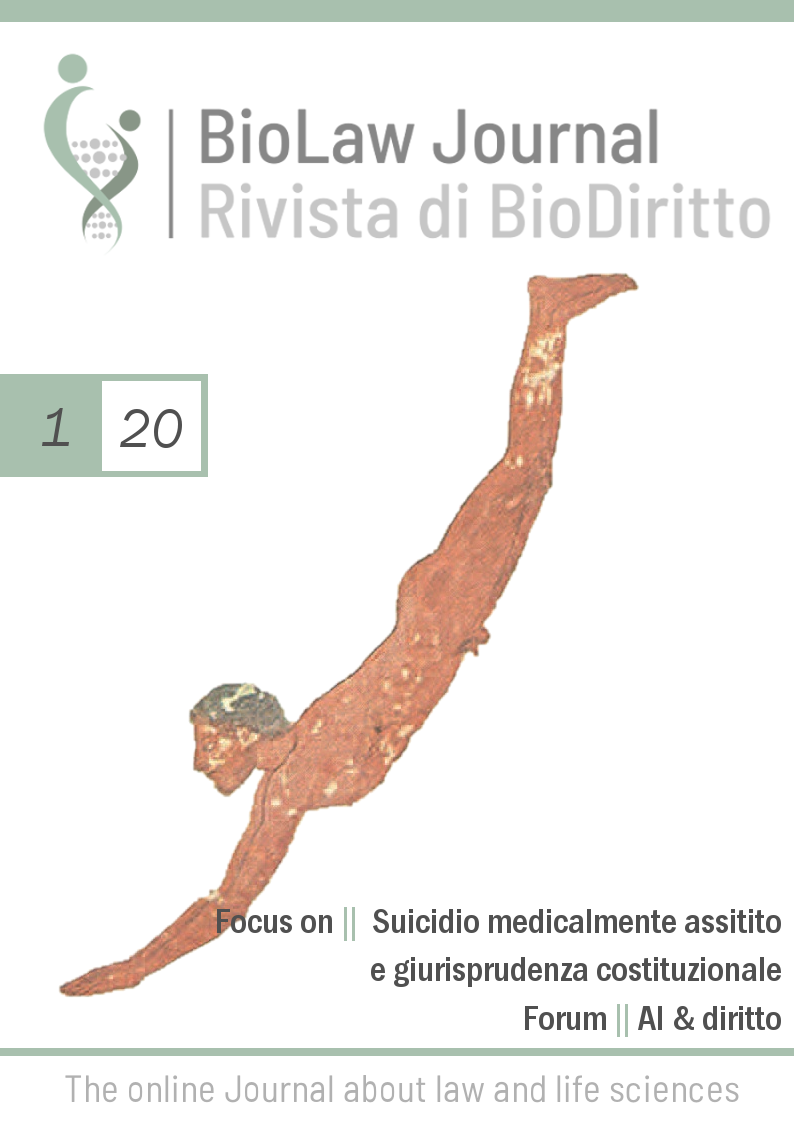Il diritto a nascere con un patrimonio genetico non arbitrariamente modificato come limite alla legittimità delle manipolazioni genetiche embrionali
DOI:
https://doi.org/10.15168/2284-4503-527Parole chiave:
Germline gene editing, CRISPR/Cas-9, comparative law, biolaw, embryosAbstract
Germline gene editing technologies are rapidly spreading all over the world. Therefore, there is a strong need for the law to start regulating the matter, because of the improvement of the CRISPR/Cas-9 technique and the possible risks involved. The present article aims to analyse under a comparative perspective whether it is possible to consider a hypothetical right to be born with a genetic inheritance not (arbitrarily) modified as a reason for an absolute ban on these techniques.##submission.downloads##
Pubblicato
2020-03-10
Come citare
1.
Conditi N. Il diritto a nascere con un patrimonio genetico non arbitrariamente modificato come limite alla legittimità delle manipolazioni genetiche embrionali. BioLaw [Internet]. 10 marzo 2020 [citato 18 febbraio 2026];(1):251-7. Disponibile su: https://teseo.unitn.it/biolaw/article/view/1455
Fascicolo
Sezione
Saggi





